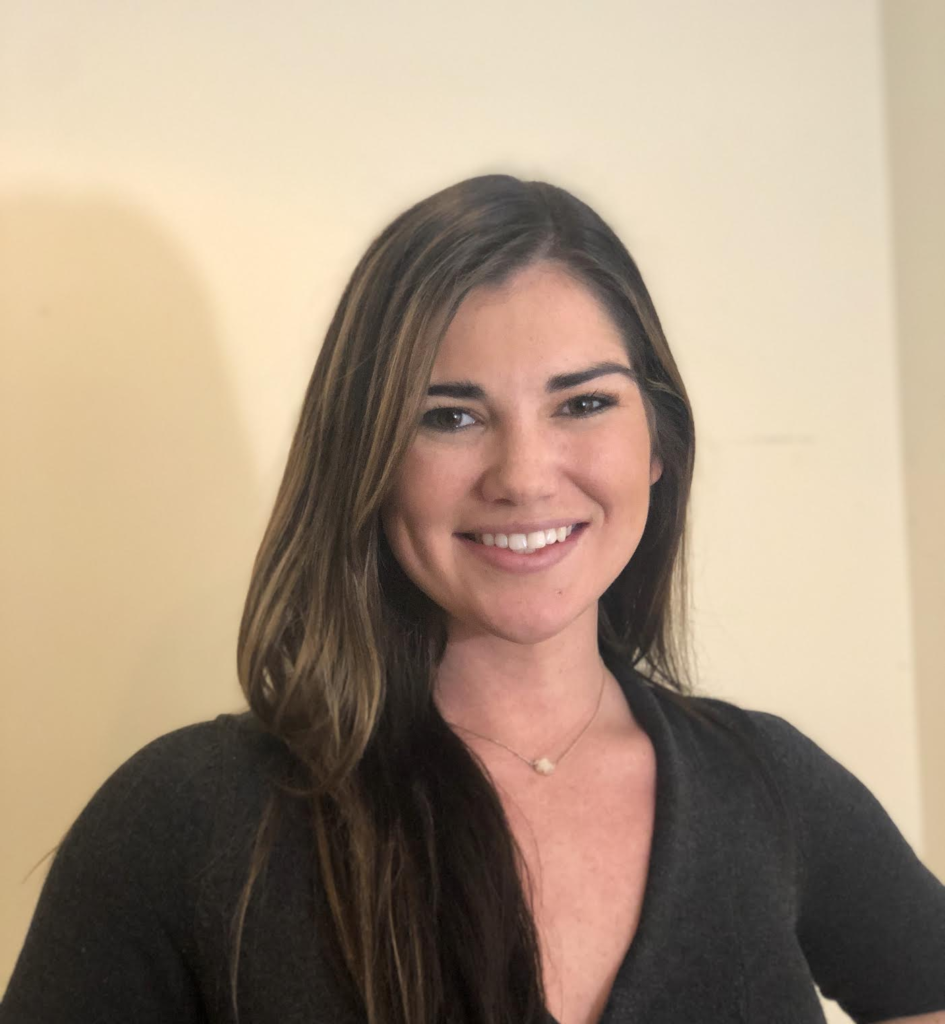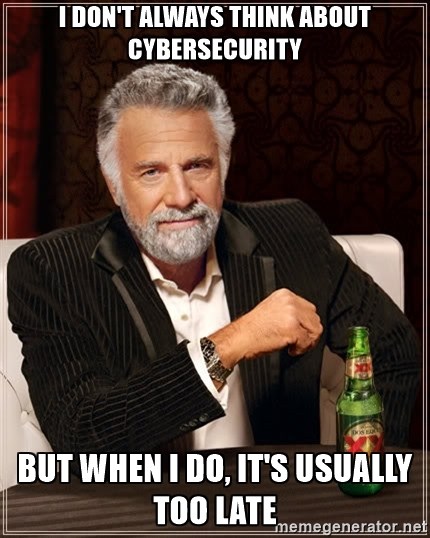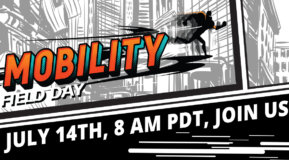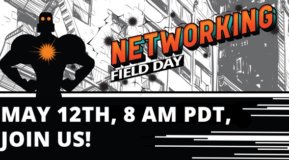Security Field Day is almost here, and I’m looking forward to meeting Kori Younger in person. Kori is finishing her degree in Information Systems and Cyber Security in December 2019. She juggles being a full-time student, an internship and a blog. She is a strong advocate for women in technology. Be sure to follow Kori at @SDNDaughter and Total Packets.
 Jamie Easley: When you’re not at Security Field Day, what do you do?
Jamie Easley: When you’re not at Security Field Day, what do you do?
Kori Younger: I’m still in school, studying information systems and cybersecurity. That’s my biggest twist -- being a student. This is my third Tech Field Day event, and every time we go around the table and say what we do, I say I’m an intern. I love the jaw drop. I don’t usually tell people this until after I’m done talking about network security and microsegmentation.
I’m also an intern with CDW at my university so I get to follow along on everything from Wi-Fi refreshes to cloud migration to now, security protocols. My university just put in 2,500 Alexas in dorm rooms, adding an increased security concern, in light of having the next best thing to draw in new students.
When I’m not doing that, I run Total Packets. In addition to what you see on the website, I travel to events and promote careers in technology to young women and all young people.
There’s something really fun about sitting down with all of the boys, and proving yourself to be an equal. And as a student I have the eagerness to continue learning. It’s my turn. I love sitting bouncing ideas off of each other, and shocking the table with being technical.
JE: I noticed you run Total Packets with your mom. There aren’t many mother-daughter duos in technology. That’s so cool.
KY: I grew up learning about SDN -- well for the past five years that it has come into existence. When I was in high school, I started getting interested in technology. I’d sit down with my mom and we’d just talk. In college I began studying information systems and didn’t realize that it was a foreign language to most. Some people speak French and English, I speak geek and English.
JE: What motivated you to step outside the classroom and advocate to get more women into tech?
KY: I’m 22, and it stemmed from this changing culture of women in technology. I grew up with a mom in tech, and she was just doing her job. Now there’s all this awareness around being a women in tech.
As I started to come into the field, I struggled to find strong female mentors and a support system. It’s part of the issue of being a women in a male-dominated world. Females are twice as likely to quit a career in technology as men, and I think part of that issue is the acceptanceand visibility. There’s nowhere for someone to turn and say, “Who else is doing what I’m doing.” You look around and there are only two women for every ten people. We are here, but for women entering the field it may sometimes be hard to find that role model, especially for those who don’t have family in the same industry.
There are a lot of very strong, smart females in this field, and when you search, you can find them. I found great connections and mentors that way. My hope is that no college age female has to feel alone entering this field.
JE: If you weren’t in technology, what career would have chosen?
KY: An actress. I grew up as a model. When it was time to get serious about going to college, I had the option to go a super-academic route or pursue this thing I did since I was a kid. I chose to go with my brains, and I’m so happy about it. I like geeking out a lot more.
JE: What is the biggest security risk that you think people consistently overlook or don’t know about?
KY: People aren’t thinking about endpoint devices or IoT devices. These devices are becoming increasingly smarter, and they’re in our homes, businesses and even dorm rooms. There are not many security protocols around them, and each of them is connected to the network.
JE: How do we raise the profile of the importance of cybersecurity?
KY: Until there’s a breach, people don’t think about security. We need to be more vocal about breaches that happen. We have to put more breaches in the news, otherwise everyone assumes everything is hunky-dory.
There’s something to learn from every breach. It’s embarrassing and you don’t want anyone to know. But we have a lot to learn from each other. The value of collaboration CANNOT be understated.
JE: Do you think AI will used for good or evil in cybersecurity?
KY: I’m an optimist, so I want to say AI will be used for good. There’s a lot of good that can come from AI and network analytics. The only way to find an APT is using network analytics.
JE: What is your favorite technology gadget?
KY: I’m a Millennial, so I can’t live without my phone. It connects to my car. I walk up to the house and the door unlocks. My phone is the keyhole to my life. I can’t even get into my laptop without the RSA token on my phone.
JE: Are you a meme person? Do you have a favorite meme?
KY: Memes are my life! But in the nature of cyber security awareness, I think this one (unfortunately) sums up the culture all too well.

Kori is a delegate at the Security Field Day on Fri., Dec. 14 at 9am PST. Watch the live stream here.
Meet the Other Delegates
Ethan Banks talks cybersecurity and winter peak bagging.
Jeff Wilson wants to know if you have thought enough about code integrity.




